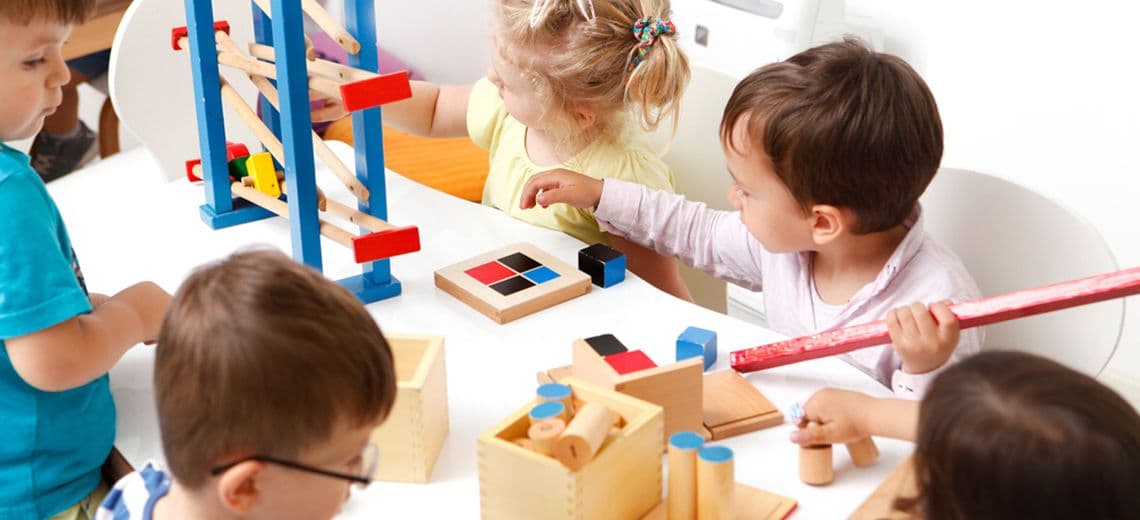
Helping Gifted Students Succeed: A Parent’s Guide for Elementary School Children
This guide aims to equip parents of gifted children with practical and effective strategies to support them in today’s academic world.

Photo by Julia M Cameron
Gifted students are characterized by their exceptional abilities in various aptitudes, including intellectual, creative, or artistic fields. Recognizing these individual gifts and nurturing them is essential for the student’s development and their overall success. This guide aims to equip parents of gifted children with practical and effective strategies to support them in today’s academic world.
Understanding Giftedness
Gifted children typically exhibit a distinct set of characteristics that set them apart from their peers. Here are some common indicators that may suggest your child is gifted.
- Exceptional Cognitive Abilities: Gifted children often display advanced reasoning and problem-solving skills, grasping complex concepts more quickly than their peers. For example, they might solve math problems that are advanced for their age, such as understanding multiplication or fractions in 1st grade (most public schools teach this in late 2nd/early 3rd grade). They might solve a word problem by not only getting the answer but explaining their thought process and showing a deeper understanding of how the numbers relate to each other.
- Intense Curiosity: Gifted children tend to ask deep questions and demonstrate a voracious appetite for knowledge that exceeds typical developmental expectations. For example, a student may ask questions pondering how electricity works, or time zones, showing an advanced desire to explore topics beyond their age. Your child may also get really into learning about one specific topic and become a treasure trove of knowledge on a topic they are passionate about.
- Rapid Learning: Many gifted students can learn new information swiftly and may excel in subjects with minimal guidance from teachers. For example, a student may pick up the math skill of place value, and move on quickly to understanding the concept of “carrying numbers” in addition.
- Vivid Imagination: Gifted children often express their creativity through imaginative play, storytelling, and various artistic pursuits. For example, a student could create a detailed game with special rules, characters, and steps to follow, or be able to craft complex written or verbal stories. In particularly young children, this might look like complex imaginative play.
Despite these traits, there are often misconceptions about giftedness. Some may assume that all gifted children are socially adept or that they don't require extra assistance. In reality, many gifted students may encounter unique challenges, such as feeling isolated from their peers or grappling with perfectionism. Many gifted children often eschew sports and struggle to connect with their same age peers, unless those peers are also gifted. And it is not uncommon for gifted students to have big feelings and be considered “sensitive.” Many need support and guidance in coping with their emotions and/or self-criticism.
How to Support Your Gifted Child
Benefits of Supporting Gifted Students Early
Early intervention for gifted students can yield significant emotional and academic benefits. By fostering their strengths, parents can help establish a robust foundation that enhances self-esteem and resilience. When gifted students receive the right support, they are more likely to cultivate a lifelong passion for learning.
To effectively support your gifted child, it's essential to identify their strengths and weaknesses. Understanding where they excel and where they might need additional help allows for a more tailored approach to their development. Early intervention methods at home can include encouraging the student’s natural curiosity by providing books, games, as well as resources that support the students interests. At school, intervention methods involve enrichment programs such as extracurriculars, advanced courses, gifted student programs, along with assessments to determine the best educational strategy moving forward.
By addressing both their academic and emotional needs, the student’s parents and educators can foster a supportive environment in which the student can thrive. However, it is important to be aware of potential perfectionism that can often arise in gifted students, which presents itself as excessive self criticism, fear of failing, and emotional difficulty in completing tasks due to pressure (often internal) of meeting their expectations.
Working with Schools

Photo by Max Fischer
Educational institutions often offer various options for gifted students, including specialized programs. These programs are designed specifically for gifted students, typically involving a curriculum that highlights high level thinking, creativity, strategy, and problem-solving. Examples of specialized programs include gifted and talented classes, magnet schools, and summer enrichment programs. Specialized programs are best for parents who think their student may benefit from courses tailored to gifted students, alongside peers who share the same academic abilities.
Another approach is called differentiated instruction. It involves modifying the standard curriculum in order to challenge and meet the intellectual needs of the gifted student. The student’s instructor will offer additional materials on top of the main lesson, such as extra reading assignments and assessments. This option is often chosen by families who want their student to remain in their same classroom environment, but still receive an education that meets and challenges their abilities.
A third approach, called acceleration, is an option that allows the gifted student to work through the material at a faster pace. This is easiest in a homeschooling environment, but can also mean skipping a grade for some students. Parents may choose this approach if their student has the ability to grasp new concepts significantly faster than their peers and is also emotionally ready to handle the challenges of a higher grade level or more advanced coursework. This option, while successful for some students, can pose social and emotional challenges for others.
What is the Difference Between an Enrichment Approach and an Accelerated Program for Gifted Students?
Enrichment Programs provide opportunities for deeper engagement with subjects, fostering creativity and critical thinking. These programs often extend the standard curriculum through advanced topics and stimulating projects. Accelerated Programs, in contrast, allow gifted students to progress through the curriculum at an expedited pace, potentially placing them in higher-grade classes or enabling them to tackle advanced coursework.
It’s important for parents to engage in discussions with teachers and school administrators to determine which educational pathway best aligns with their child's unique needs.
Options at Home or Outside of School

Photo by Ivan Samkov
Supporting gifted students extends beyond the classroom setting. Here are several effective strategies parents can implement.
- Encourage Self-Directed Learning: Gifted children often thrive when given the freedom to explore their interests independently in a supportive environment. Parents can encourage them to pursue interests that ignite their curiosity by creating a designated space in the home filled with games, kits, and books that are aligned with their child’s individual interests. Reading age appropriate books, facilitating projects such as building a model, or creating artwork, encourages the student’s creativity and promotes exploration and curiosity and teaches children to use these traits effectively. Enrolling the student in local classes that are related to their interests, and spending time in relevant museums or exhibitions can further enhance their individual learning and interests.
- Consider Tutoring: Personalized tutoring can provide the specialized support gifted students need, whether for enrichment or acceleration. Our experienced tutors are dedicated to enhancing your child's educational experience, ensuring they remain engaged and challenged. Parents can narrow down their tutor search by subject or specific interest, or can speak with an expert at Ivy Tutors Network to determine the best choice for their child’s academic path.
- Explore Supplemental or Summer Programs: Enrichment camps, workshops, and extracurricular activities offer gifted students additional opportunities to pursue their passions while connecting with peers who share their interests. For example, STEM camps can offer hands-on learning experiences in math and science through robotics and coding education. Arts camps allow the student to follow their creative interests in subjects such as dance, theater, music, or visual arts. Additional options include after school extracurriculars or workshops such as writing or sports workshops. These programs are also ideal for students who may not have access to such experiences through their school.
Frequently Asked Questions About Giftedness

Photo by Tima Miroshnichenko
Is Being Gifted a Form of Neurodivergence?
Giftedness is recognized as a form of neurodivergence, as gifted individuals' distinct traits can set them apart from grade-typical academic standards, as well as their peers. Gifted children may not only experience intellectual abilities, but also can portray characteristics associated with neurodivergence such as heightened sensitivity and unique learning approaches. Research suggests that giftedness can also coexist with other forms of neurodivergence such as ADHD or autism (these students are often referred to as twice exceptional), which continues to show us that no gifted learner’s experience is one and the same.
What Are the Best Activities for Gifted Students?
The most beneficial activities for gifted students often include open-ended projects, opportunities for creative expression, and those that promote critical thinking. An example of an open-ended activity could be a science or history project that allows them to deepen their understanding on a topic of interest and promotes independent learning. These students are often interested in a much deeper learning experience than the average classroom provides. Open-ended projects allow gifted students to delve as deep and specific as they desire. Creative expression can be supported by activities such as writing a short story or creating a piece of artwork. Their critical thinking can be challenged through advanced reading materials and problem-solving games that require the use of their analytical skills.
What Is Enrichment for Gifted Students?
Enrichment refers to providing gifted students with opportunities to explore subjects in greater depth, discover new areas of interest, and develop critical thinking skills beyond the standard curriculum. Enrichment can occur in or out of the classroom but is intended to provide gifted students with the mental stimulation they crave and on which they thrive.
Do Gifted Kids Need to Be Challenged?
Absolutely! Gifted students thrive on intellectual challenges. Without appropriate stimulation, they may experience boredom or disengagement. Providing opportunities that keep them engaged is essential for their growth.
What to Do When Your Gifted Child Is Bored in School?
If your gifted child expresses boredom in school, consider discussing their feelings with their teacher. They may benefit from advanced assignments, independent projects, or opportunities to collaborate with peers on enrichment activities.
Recognizing and nurturing giftedness in elementary school is vital for helping children realize their full potential. By trusting your instincts and remaining involved in your child's education, you can create a nurturing environment that fosters their growth. At Ivy Tutors Network, we are committed to providing tailored support for gifted students, whether through enrichment or accelerated learning. Contact us today to discover how we can help your gifted child thrive!




